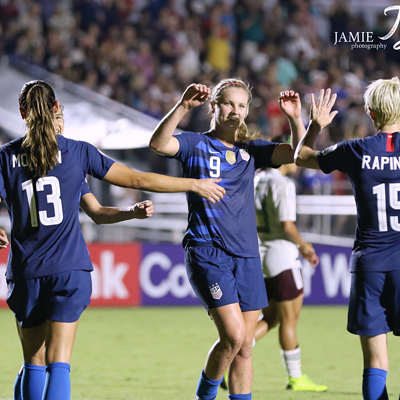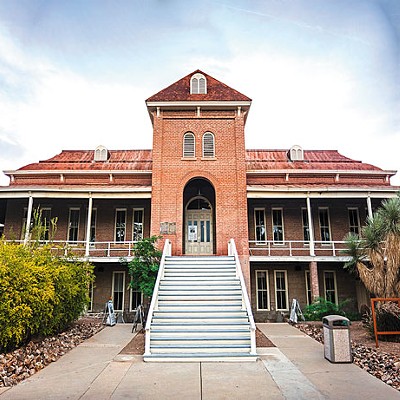You may have noticed that nearly two-thirds of the gold medals won by the 2012 U.S. Olympic team were earned by women. You also may have noticed the inspiring camaraderie and cohesion they displayed in overcoming adversity, especially in the epic triumphs of the soccer and gymnastic teams.
But you probably didn't notice, just a few weeks before, the 40th anniversary of Title IX, the federal provision that mandated gender equality in school athletics and made the vast majority of those medals possible—promoting character, confidence and many other intangibles that go way beyond championship hardware.
Incredibly, by the time you read this—barring a meteorological act of God—the Republican Party convention will have settled on a platform that seeks to decimate Title IX funding and turn back the gender clock about, oh, 40 years.
Sadly, the revolution is not yet won. (Far from it, judging from the vast array of medieval white men running for office.) But fear not! From the shadows of gender repression, into the bright lights of social subversion, emerges a superhero for the modern era: Rollergirl!
Right here in the Baked Apple, fighting under the banners of Tucson Roller Derby and the Women's Flat Track Derby Association, hundreds of players and supporters have organized to get exactly what Title IX promised: an opportunity to compete athletically, to grow personally and to form nurturing bonds that may have been impossible to forge in any other way.
"For almost all of us, it wasn't just that 'roller derby looked fun, and I wanted to play sports,'" says BAM Bina, a prominent organizer of the local league. "It's almost always something more. For me, I was going through a breakup, and I had just lost my sister. Roller derby gives us kind of a family."
It's a consistent theme throughout the more than 1,000 flat-track derby leagues that have sprung up around the world in the past 10 years, as evidenced in the film Derby, Baby!, which screened recently at the Loft Cinema. Tens of thousands of women now participate in something they created and control: Modern roller derby is owned, organized, funded and governed by the women who play it.
That's exactly the sort of empowerment that Title IX engenders. During Derby, Baby!, as the narrator ran through a long list of benefits that women derive from athletic participation—greater self-esteem, stronger relationships, higher earning potential, reduced incidence of depression and mental illness, myriad physical benefits, and on and on—I glanced sideways and discovered that my partner was in tears. Afterward, she explained flatly, "I don't think I ever would have made it through high school without sports. I probably would have killed myself."
Some rollergirls played sports in school, but many had never been on a team of any kind until derby. Some must learn to skate (and fall) (and get up) before learning the game. But whatever their athletic ability, in the process of becoming derby veterans, they gain experience in marketing, management, communications, fundraising, design and engineering—all of the things that are wrapped up in holding a league together and producing the events.
And what an event! Let's see, what do I like most about roller derby? The cheap beer? The motor-mouthed announcers? The big, ballsy music? The crazy derby names, sassy uniforms and cool gear? Yeah, those are all good, but ... I gotta be honest with you: It's the thrill of watching strong, determined women skate fast around a small track while they attempt to outmuscle and outpace each other in a strategic and intricate ballet of bruises.
This ain't the contrived, banked-track spectacle that I remember watching on UHF TV when I was a kid in the 1970s, which was kind of a female version of professional wrestling. These women play hard, and there's a reason the games are called "bouts"—skate to hit; hit to win.
Supporting roller derby can be as easy as getting your car washed on a monsoon Saturday by people named Carrie Gunns, Mystery Meat and Dewey Decimatrix. The women of roller derby work hard on their game, like any other athletes, but also work to support their teams, league and each other. As BAM Bina put it, "It really is a labor of love."
Homemade munchies! PBR! Frayed fishnet! Maybe someday, roller derby will be an Olympic sport. In the meantime, the Copper Queens, the Vice Squad and the venerable Furious Truckstop Waitresses are ready to lace up their quad skates, strap on their pads and buckle their helmets. Check out tucsonrollerderby.com, and get your ass down to the Wreckhouse, 1145 E. Valencia Road, for the season opener on Friday, Sept. 28, to support the roller revolution.






